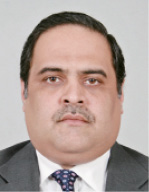A typical trend, particularly in the fast moving consumer goods sector, is to opt for “sub-brands” or trademarks that describe a product’s abilities, ostensibly to make it easier for consumers to relate to the product. While choosing arbitrary or “invented” marks is more advisable, descriptive or laudatory descriptions which extol the virtues of product features – such as Sugar Free for a sugar substitute or Losorb for low absorption in relation to edible oils – are often used.

Under the Trade Marks Act, 1999, descriptive marks are incapable of registration. However, an exception to this “absolute bar” is made for a descriptive mark which has acquired distinctiveness or a secondary meaning through use or is a well-known mark before the date of application for registration. For marks considered as descriptive but which have been registered, in proceedings to cancel such registrations, use after the date of registration may also be taken into account. Thus, the default position in India is that a mark which is descriptive cannot be registered unless it has acquired distinctiveness or it has acquired a secondary meaning.
Case law
Given the constrained protection accorded to “descriptive” marks, challenges arise when trademark owners seek to protect them against competitors.
You must be a
subscribersubscribersubscribersubscriber
to read this content, please
subscribesubscribesubscribesubscribe
today.
For group subscribers, please click here to access.
Interested in group subscription? Please contact us.
你需要登录去解锁本文内容。欢迎注册账号。如果想阅读月刊所有文章,欢迎成为我们的订阅会员成为我们的订阅会员。
Ameet Datta (ameet@saikrishnaassociates.com) is a partner at Saikrishna & Associates, where Suvarna Mandal (suvarna@saikrishnaassociates.com) is an associate.
A-2E, CMA Tower, 2nd Floor
Sector -24, NOIDA – 201301
National Capital Region, India
Tel: +91 120 4633900 (100 Lines)
Fax: +91 120 4633999























